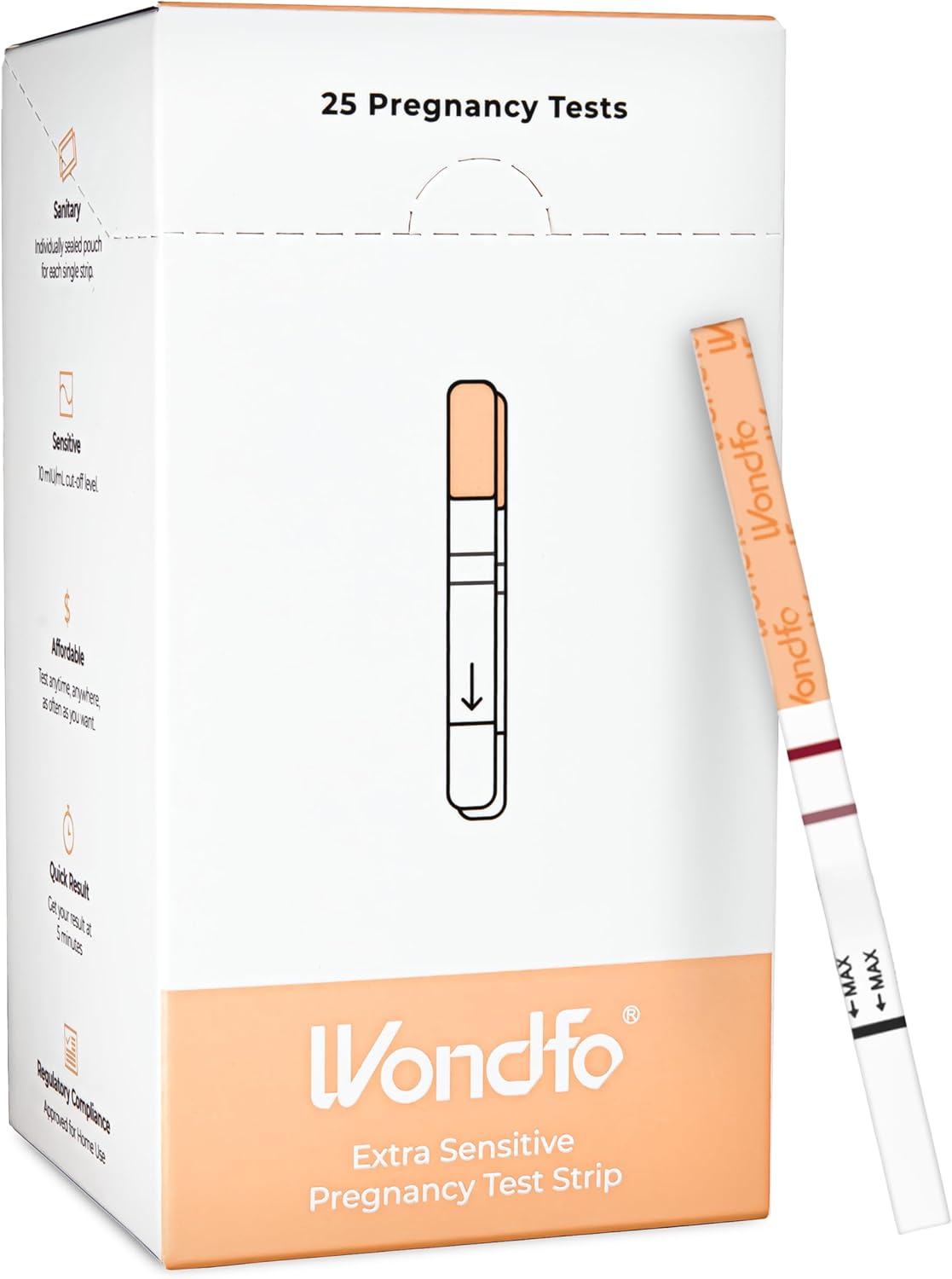








Price: $7.99
(as of Apr 08, 2025 00:31:29 UTC - Details)
What is the Best Time to Test for Pregnancy? A Comprehensive Guide
Introduction
Finding out if you're pregnant can be one of the most significant moments in your life. But the question remains: What is the best time to test for pregnancy? This query is crucial for anyone who might be trying to conceive or suspects they might be pregnant. In this article, we will explore the optimal timing for taking a pregnancy test, the types of tests available, and provide practical tips to help you navigate this important journey. By understanding the best time to test, you can ensure accurate results and peace of mind.
Understanding Pregnancy Tests
What is a Pregnancy Test?
A pregnancy test is a simple way to determine if you are pregnant by detecting the hormone human chorionic gonadotropin (hCG) in your urine or blood. This hormone is produced shortly after a fertilized egg attaches to the uterus.
Types of Pregnancy Tests
When considering what is the best time to test for pregnancy, it’s helpful to know about the different types of tests available. The two main types are:
-
Home Pregnancy Tests (HPTs): These are over-the-counter tests that you can take in the privacy of your home. They are easy to use and provide quick results.
- Blood Tests: Conducted at a doctor’s office, these tests can detect pregnancy earlier than home tests and measure the exact amount of hCG in your blood.
When to Take a Home Pregnancy Test
Timing is Everything: Optimal Testing Days
The best time to test for pregnancy with a home pregnancy test is typically after your missed period. This allows enough time for hCG to build up in your system for accurate detection. If you have irregular cycles, you may want to wait about two weeks after you suspect conception.
Morning Testing: Why It Matters
Many experts recommend testing in the morning. This is when your urine is most concentrated, which can lead to more accurate results. If you're wondering what is the best time to test for pregnancy, consider setting your alarm a little earlier to take the test first thing.
Early Detection Tests
Understanding Early Pregnancy Tests
Some pregnancy tests are designed for early detection, allowing you to test even before your missed period. These tests can be sensitive enough to detect low levels of hCG, but results may not always be reliable.
Pros and Cons of Early Testing
- Pros: You get results sooner and can start planning accordingly.
- Cons: There’s a higher chance of false negatives. If you test too early, the hormone levels may not be high enough for detection.
Signs to Look For
Common Early Symptoms of Pregnancy
While you wait to take a test, you may notice some early signs of pregnancy. These can include:
- Missed period
- Nausea or morning sickness
- Tender breasts
- Fatigue
Listening to Your Body
If you experience these symptoms, it might be time to consider what is the best time to test for pregnancy. However, it's essential to remember that these symptoms can also relate to other factors, so testing is the best way to confirm.
How to Use a Pregnancy Test
Step-by-Step Instructions
- Read the Instructions: Always start by reading the instructions on your pregnancy test kit carefully.
- Collect Urine: You can either test directly in the stream of urine or collect it in a cup and dip the test strip.
- Wait for Results: After a few minutes, check the result window. Most tests will show lines or symbols to indicate whether you are pregnant.
Interpreting Results
Understanding what is the best time to test for pregnancy also means knowing how to read the results. A positive result usually means you are pregnant, but if the result is negative but you still feel pregnant, wait a few days and test again.
Factors Affecting Test Accuracy
Timing and HCG Levels
The timing of your test can significantly affect its accuracy. Testing too early can lead to false negatives, especially if your hCG levels are still low.
Test Sensitivity
Different brands of pregnancy tests have varying sensitivities. Some can detect lower levels of hCG than others, which can influence what is the best time to test for pregnancy.
What to Do After a Positive Test
Confirming Pregnancy
If you get a positive result, the next step is to confirm your pregnancy with a healthcare professional. They may suggest a blood test to measure your hCG levels and ensure everything is progressing normally.
Planning for the Future
Once you confirm your pregnancy, it’s a good time to start planning for the future. This can include scheduling prenatal care and discussing lifestyle changes.
Conclusion
In conclusion, knowing what is the best time to test for pregnancy can make a significant difference in your journey. To ensure the most accurate results, wait until after your missed period and consider testing in the morning. Understanding the types of tests available, the signs of pregnancy, and how to interpret results will empower you in this important decision. Whether you're trying to conceive or suspect you might be pregnant, having the right information can help you take the necessary steps forward. Remember, if you have any doubts or concerns, consulting with a healthcare provider is always a smart choice.
Magic of Early Detection -10 mIU/ml cut-off level (much LOWER than standard 25 mIU/ml) enables you to get results as early as 6 days before the missed period.
Ultra Responsive - Our test strips work amazingly well with small concentrations of HCG and show you the result in only 3-5 minutes. Do not read the result after 10 minutes. The result after 10 minutes is invalid.
User-Friendly Design - Individually sealed pouches take extra care of your privacy and cleanness.
Line Progression Tracking- Multiple usage times allow you to observe line progression and help track the development of HCG levels over time.
